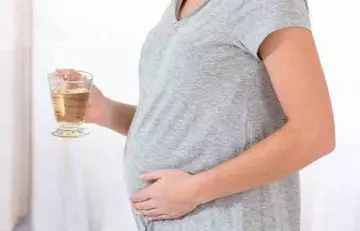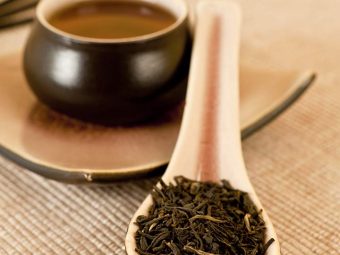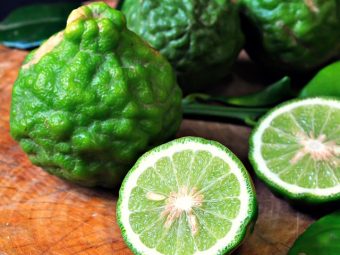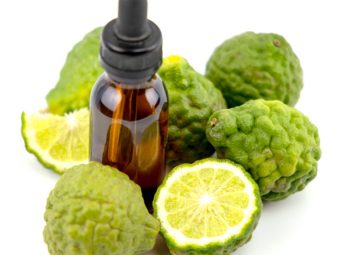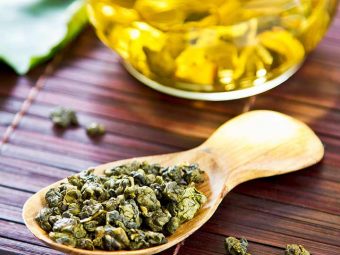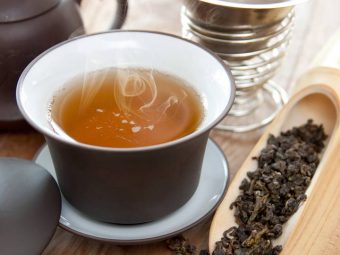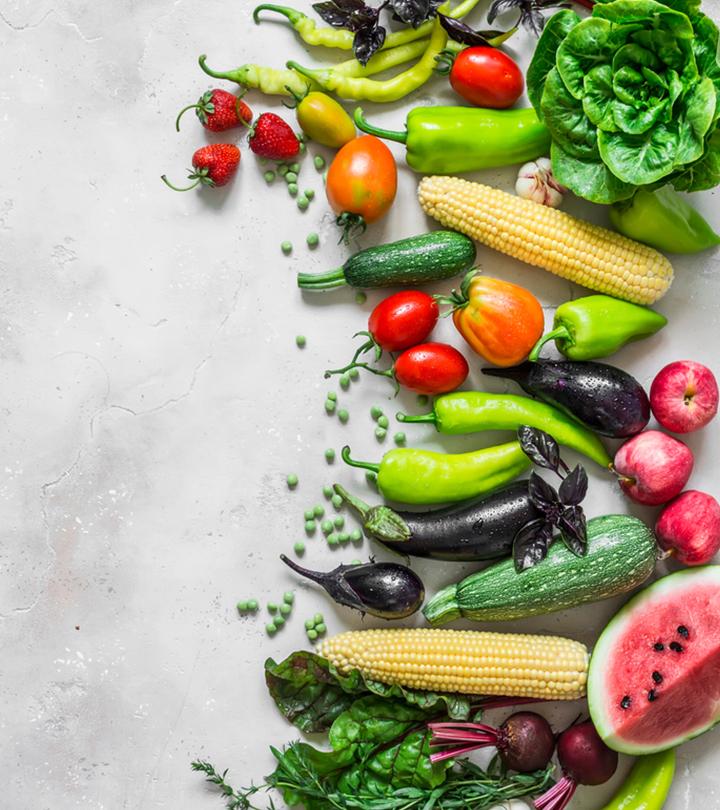Earl Grey Tea Caffeine: Is It Safe During Pregnancy?
Maybe it's better to steer clear of your daily cup o' tea till you give birth.
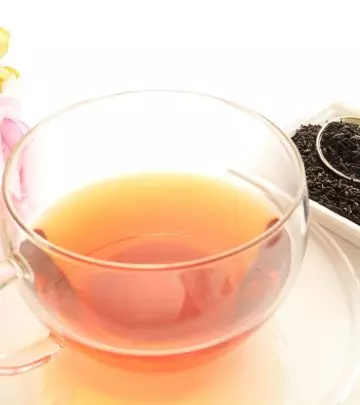
Image: Shutterstock
All tea lovers cherish Earl Grey tea. But can you have Earl Grey tea during pregnancy? Are there any safety concerns you should be aware of? Will the caffeine content affect you?
Go through this detailed post to learn about the caffeine content of Earl Grey tea and its safety during pregnancy.
In This Article
Earl Grey Tea Or Black Tea
Earl Grey tea is a mixture of black tea and bergamot oil (BGO) (1). It has a bold and citrusy flavor due to the addition of synthetic or natural bergamot oil.
Bergamot orange is an aromatic citrus fruit commonly found in the Mediterranean. The taste may vary from one producer to the other. However, in general, its taste is bold and refreshing.
According to a global survey of 6849 participants, 18% of British participants preferred consuming Earl Grey tea. It was further observed that 85% of British participants preferred drinking it with milk in comparison to 32% of Swedish participants. Furthermore, 21% of women and 16% of men liked consuming Earl Gray tea respectively.
Now, let us move on to the main concern — earl grey tea caffeine.
 Trivia
TriviaCaffeine Content In Earl Grey Tea

Traditional Earl Grey tea contains caffeine, the exceptions being herbal Earl Grey tea or its decaffeinated variants.
The caffeine content in Earl Grey tea varies depending on the producer. But, in general, it is almost similar to the amount of caffeine in other black teas.
A regular cup of Earl Grey tea contains approximately 55-65 mg of caffeine (2). Decaffeinated Earl Grey tea contains lesser caffeine.
But, is Earl Grey tea safe to drink while pregnant? Does it have any adverse effects? Read on to find out.
How Safe Is Earl Grey Tea During Pregnancy?
Earl Grey tea is extremely popular. Hence, you will find innumerable flavors in this type of tea. Though tea offers several health benefits like improving your body’s hydration and preventing oxidative stress, research has shown that too much intake of any form of black tea can lead to serious side effects due to its caffeine content.
Several studies have found that high caffeine intake (>150 mg/day) during pregnancy may result in increased risks of low birth weight (in the baby), spontaneous abortion, and restricted fetal growth (3), (4), (5).
However, limiting your caffeine intake to 1-2 cups per day is not a cause for concern, even in pregnancy (6).
It is always better to take your doctor’s advice before experimenting with any beverages.
Hence, even though Earl Grey tea is soothing in nature, make sure to drink it only in moderation during pregnancy.
How Much Should You Drink?
According to the European Food Safety Authority (EFSA) and the American Institute of Medicine, caffeine intake should be limited to less than 200 mg/day during pregnancy (7).
Health experts say that ingesting around 250 mg of caffeine per day is safe for adults, but only if you are maintaining a healthy lifestyle.
In pregnant women, the ingestion should be restricted to around 150 mg/day during the prenatal period.
Drinking too much Earl Grey tea may risk the health and wellness of the fetus as well as the mother.
So, if you are in the early stage of motherhood and breastfeeding or are pregnant, you should restrict your consumption to 1-2 cups to avoid complications.
 Quick Tip
Quick TipNow that you know that you can drink Earl Grey tea in moderation, scroll down to the next section to see how to make it at home.
How To Make Earl Grey Tea
Ingredients
- 8 ounces of fresh water
- 1 teaspoon of Earl Grey tea leaves or 1 tea bag
- Optional: Sugar, honey, milk, or lemon for flavor
Preparation
- Boil the water in a saucepan.
- Add the Earl Grey tea leaves or tea bag to the cup.
- Pour the boiling water over the tea leaves or tea bag.
- Cover and steep for 3-5 minutes.
- Remove the tea leaves or tea bag. You can steep it for another 5 minutes for a stronger brew.
- Add sugar, honey, milk, or lemon as per your taste.
Now, let’s check out the potential side effects of this popular tea in pregnant women.
Possible Side Effects Of Earl Grey Tea In Pregnant Women

The possible side effects of Earl Grey tea in pregnant women include:
- Headaches
- Nervousness
- Sleeplessness
- Irritability
- Heartburn
- Confusion
- Irregular heart rate
- Tremors
- Convulsions
If you have developed a psychological or physiological dependence on this beverage, withdrawal from it can also lead to mental health-related issues such as insomnia, anxiety, hyperactivity, and confusion.
According to a study conducted in the Netherlands, too much caffeine consumption from tea (>300 mg/day) may lead to pregnancy-induced hypertension (8). However, further research is required to substantiate these claims.
Infographic: Caffeine Content In Earl Grey Tea And Its Side Effects During Pregnancy
Earl Grey tea offers several health benefits and is a pleasant change for when you are bored with plain water. Since it is loaded with antioxidants, if you are pregnant, it can be a relaxing drink substitute but only in moderate amounts because of its caffeine content as well. Therefore, to be on the safe side, always consult a doctor before consuming it. Check out the infographic below to know about the side effects of Earl Grey tea during pregnancy.

Illustration: StyleCraze Design Team
Earl Grey tea is a blend of bergamot oil and black tea. Traditional Earl Grey tea contains caffeine, and its content depends on the producer. However, in the time of pregnancy, care must be taken while planning one’s diet and nutrition. Unchecked consumption of excess caffeine during pregancy is linked with several side effects. Hence, restrict its consumption to 1-2 cups per day during pregnancy. However, it is always advisable to consult your doctor before drinking any new beverages. In addition, switching over to decaf black tea is the best solution to avoid any negative effects of caffeine during pregnancy.
Frequently Asked Questions
What teas are safe to drink while pregnant?
Tea that is low in caffeine content or decaffeinated tea is safe to drink while pregnant. But, nothing in excess is advisable during pregnancy. So, consult your doctor before drinking any beverages.
Is Earl Grey tea high in caffeine?
Earl Grey tea contains almost the same amount of caffeine as black tea. Herbal varieties and decaffeinated Earl Grey tea contain a lesser amount of caffeine.
Do you put milk in Earl Grey tea?
Earl Grey tea should be taken without milk to enjoy its subtle flavor.
Does Earl Grey tea keep you awake?
Earl Grey tea contains lesser caffeine compared to coffee, so drinking a cup of it in the evening will not keep you awake like other beverages. However, the effects might be subject to differences depending on factors like physiological state, caffeine tolerance, lifestyle, and dietary habits.
What is the difference between Earl Grey and English breakfast tea?
Earl Grey tea is a blend of black tea and bergamot oil. It has a citrus flavor that can be enjoyed without milk. English breakfast tea is mainly the Ceylon variety of tea that is enjoyed with milk and sugar.
Is it OK to drink Earl Grey tea at night?
Yes, you can drink Earl Grey tea at night as it helps you calm down and relax.
Is Earl Grey tea calming?
Yes, the bergamot oil in Earl Grey tea helps in soothing the nerves and calming your anxiety (10).
Is Earl Grey stronger than green tea?
Yes, Earl Grey tea has more caffeine than green tea. It has 30-60 mg of caffeine per cup, while green tea generally has 20-30 mg of caffeine per cup.
Key Takeaways
- Earl Grey tea is a combination of black tea and bergamot oil.
- Its high caffeine content can lead to low birth weight and restricted fetal growth during pregnancy.
- Consuming Earl Grey tea during pregnancy can cause heartburn, confusion, and nervousness.
- One can drink 1 to 2 cups of this tea every day during pregnancy safely.

Image: Dall·E/StyleCraze Design Team
Earl Grey tea is a popular flavor among tea enthusiasts, but it may do more harm than good for pregnant individuals. Watch this video to explore the potential risks and benefits of drinking Earl Grey tea during pregnancy.
References
Articles on StyleCraze are backed by verified information from peer-reviewed and academic research papers, reputed organizations, research institutions, and medical associations to ensure accuracy and relevance. Read our editorial policy to learn more.
- Navarra, Michele et al. “Citrus bergamia essential oil: from basic research to clinical application.” Frontiers in pharmacologyvol. 6 36. 2 Mar. 2015, doi:10.3389/fphar.2015.00036
https://www.ncbi.nlm.nih.gov/pmc/articles/PMC4345801/ - Bunker, M L, and M McWilliams. “Caffeine content of common beverages.” Journal of the American Dietetic Associationvol. 74,1 (1979): 28-32.
https://pubmed.ncbi.nlm.nih.gov/762339 - Fernandes, O et al. “Moderate to heavy caffeine consumption during pregnancy and relationship to spontaneous abortion and abnormal fetal growth: a meta-analysis.” Reproductive toxicology (Elmsford, N.Y.)vol. 12,4 (1998): 435-44. doi:10.1016/s0890-6238(98)00024-0
https://pubmed.ncbi.nlm.nih.gov/9717693 - Weng, Xiaoping et al. “Maternal caffeine consumption during pregnancy and the risk of miscarriage: a prospective cohort study.” American journal of obstetrics and gynecologyvol. 198,3 (2008): 279.e1-8. doi:10.1016/j.ajog.2007.10.803
https://pubmed.ncbi.nlm.nih.gov/18221932 - Bakker, Rachel et al. “Maternal caffeine intake from coffee and tea, fetal growth, and the risks of adverse birth outcomes: the Generation R Study.” The American journal of clinical nutritionvol. 91,6 (2010): 1691-8. doi:10.3945/ajcn.2009.28792
https://pubmed.ncbi.nlm.nih.gov/20427730 - Morgan, Sara et al. “Is caffeine consumption safe during pregnancy?.” Canadian family physician Medecin de famille canadienvol. 59,4 (2013): 361-2.
https://www.ncbi.nlm.nih.gov/pmc/articles/PMC3625078/ - Wierzejska, Regina et al. “Caffeine Intake During Pregnancy and Neonatal Anthropometric Parameters.” Nutrientsvol. 11,4 806. 9 Apr. 2019, doi:10.3390/nu11040806
https://www.ncbi.nlm.nih.gov/pmc/articles/PMC6520888/ - van der Hoeven, Timothy et al. “Antenatal coffee and tea consumption and the effect on birth outcome and hypertensive pregnancy disorders.” PloS onevol. 12,5 e0177619. 16 May. 2017, doi:10.1371/journal.pone.0177619
https://pubmed.ncbi.nlm.nih.gov/28520809 - Rombolà L, Tridico L, Scuteri D, Sakurada T, Sakurada S, Mizoguchi H, Avato P, Corasaniti MT, Bagetta G, Morrone LA. Bergamot Essential Oil Attenuates Anxiety-Like Behaviour in Rats. Molecules. 2017 Apr 11;22(4):614.
https://www.ncbi.nlm.nih.gov/pmc/articles/PMC6154596/






